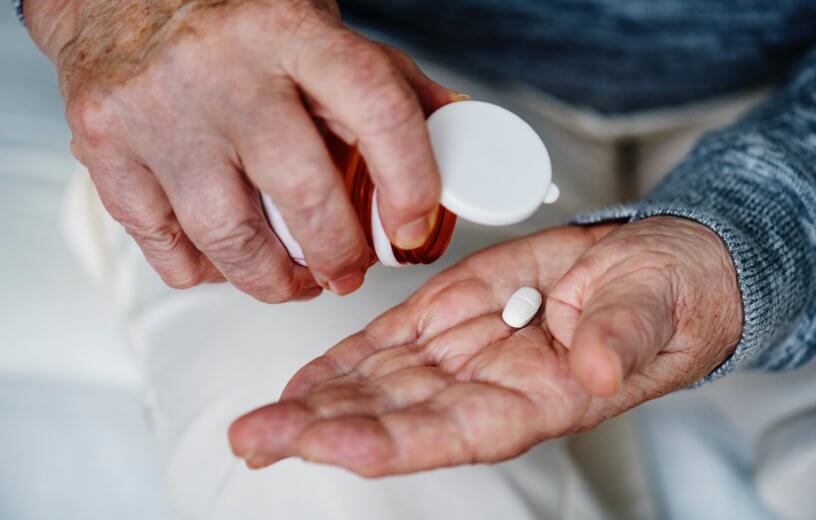SHANGHAI, China — Anti-aging treatments come in all shapes and sizes, from oxygen chambers to simple diets and exercises. Now, researchers say a flavonoid-based pill to fight aging and improve longevity could be on the horizon after scientists found the treatment dramatically extended the lifespans of mice.
A team from the Chinese Academy of Sciences in Shanghai says injecting elderly rodents with a grape seed extract increased their remaining time by more than 60 percent. It also boosted overall lifespan by nine percent, equivalent to more than a decade in a human.
Corresponding author Dr. Yu Sun says the plant chemical has “high potential” as a clinical intervention to delay, alleviate, and even prevent illnesses. The flavonoid known as PCC1 flushes out “zombie” or “senescent” cells that have stopped dividing. These aging cells accumulate naturally as people get older and release chemicals that cause inflammation.
“Ageing-associated functional decline of organs and increased risk for age-related chronic pathologies is driven in part by the accumulation of senescent cells,” Dr. Sun and researchers write in the journal Nature Metabolism.
“Here we show that procyanidin C1 (PCC1), a polyphenolic component of grape seed extract (GSE), increases the health span and lifespan of mice through its action on senescent cells.”
Longevity pill a new way to improve cancer therapies?
Study authors screened a panel of natural compounds in a model of cultured human prostate cells. They found PCC1 selectively killed senescent cells, leaving healthy ones alone. In mouse models of disease – including exposure to radiation – the compound again lowered unhealthy accumulations of cells and boosted health. The therapy also improved the effect of chemotherapy among animals with compromised immunity systems.
The team administered injections of PCC1 to 91 male and female mice between 24 and 27 months-old. In human years, that would be between 75 and 90 year-olds, the researchers say.
Results show that the treatment appears to be safe, with the mice tolerating the injections well. Scientists still need to establish a safe dose before human clinical trials can begin. Aging is one of the biggest risk factors for cardiovascular diseases, metabolic disorders, neurodegenerative illnesses, and cancer.
“Considerable progress has been made over recent years to develop specific agents to treat individual age-related conditions, such as type 2 diabetes, osteoporosis, skeletal fragility and vascular dysfunction,” the researchers write. “However, the combined effect of these drugs in controlling morbidity and mortality of chronic diseases has been modest”
“These diseases tend to occur in synchrony as multi-morbidities, with prevalence increasing exponentially after 70 years of age,” the researchers continue.
The findings offer hope for prolonging health and lifespan and treating age-related conditions with a therapy derived from natural sources.
“The potential anti-ageing effects of PCC1 demonstrated in our preclinical assays provide good support for further translational and clinical development of PCC1, with the overall aim of achieving a longer and healthier life,” Dr. Sun concludes.
South West News Service writer Mark Waghorn contributed to this report.
